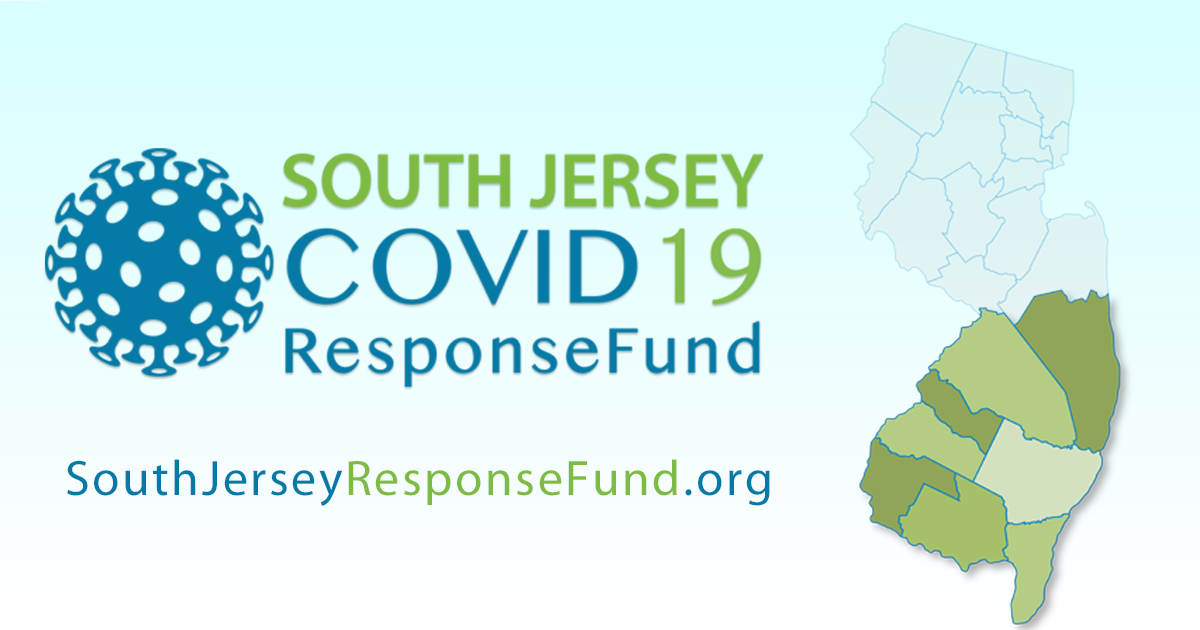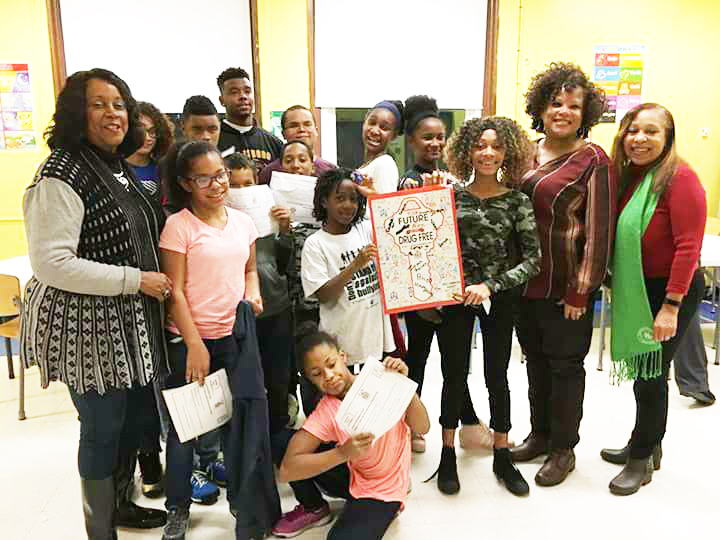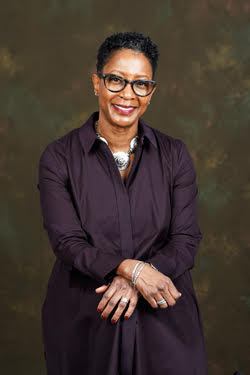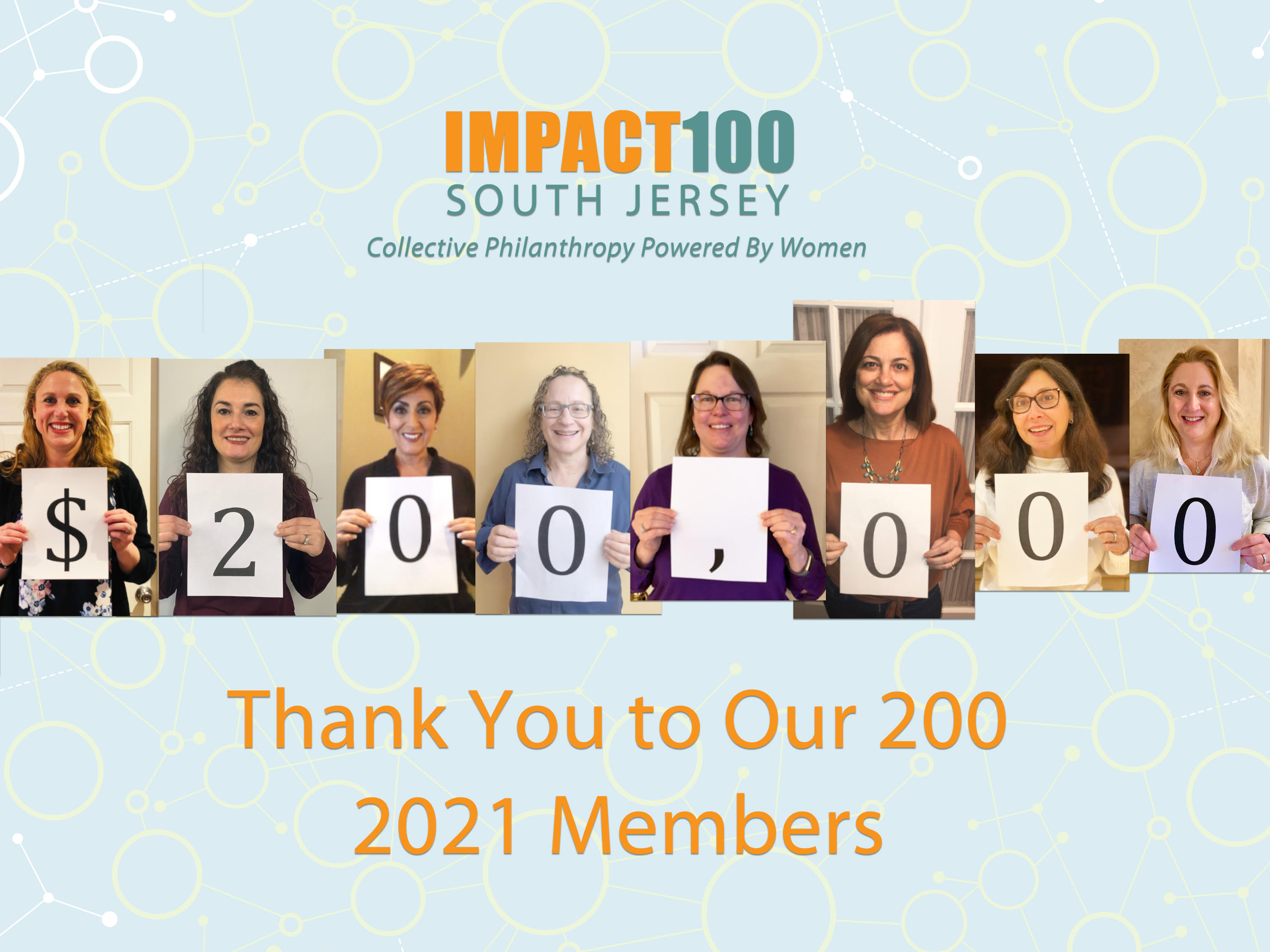Community Foundation of South Jersey (CFSJ), has awarded the fifth round of grants from its COVID-19 Response Fund. Sixteen grants totaling $155,000 were awarded to South Jersey nonprofits meeting the needs of communities in Atlantic, Burlington, Camden, Cape May, Cumberland, Gloucester, Ocean, and Salem Counties. Over the past year, CFSJ has distributed more than $848,000 to more than 110 organizations negatively impacted by the pandemic and related economic downturn. Find the list of the four previous rounds here.
“This pandemic has created challenges for families across South Jersey, including food insecurity, housing instability, and a lack of childcare. These grants build on the Foundation’s efforts to help those on the front line provide access to these essential services and more,” said CFSJ Executive Director Andy Fraizer. “We applaud the efforts of those who are working tirelessly to serve individuals and families.”
“This critical funding through five rounds of grant awards would not be possible without the continued support from our philanthropic supporters,” said Wanda Hardy, Chairperson of the Foundation’s Community Leadership and Engagement Committee. “While the long-term impact of the coronavirus and the volatility it has created remains unclear, we are committed to working closely with partners to support recovery.”
Since March of 2020, South Jersey residents, businesses, and philanthropists across the state have contributed more than $1,310,000 to the South Jersey COVID-19 Response Fund for the critical needs served by local nonprofit organizations. Even as vaccine availability expands and the economy slowly begins to reopen, ongoing investment is necessary.
“The past year has been quite a journey and the road ahead remains long and uncharted. Many in South Jersey still have a long way to go to recover from the impact of this pandemic. We are grateful to have so many by our side. Thank you for your continued support, generosity, and resilience. Big or small, every contribution makes a difference and will help to make a positive impact on someone’s life,” Fraizer concluded.
For more information on how individuals or organizations can make a donation, funding priorities, and how to apply for a grant, please visit southjerseyresponsefund.org.
ROUND FIVE GRANT AWARD RECIPIENTS:
The Arc of Atlantic County – Egg Harbor, NJ
With a grant of $10,000, the Arc will continue to provide remote programming and telemedicine to individuals living with intellectual and developmental disabilities across Atlantic County.
AVANZAR – Pleasantville, NJ
The $10,000 grant will help house & serve victims of domestic violence, sexual assault, and human trafficking in and around Atlantic County.
Camden County Habitat for Humanity – Pennsauken, NJ
The $15,000 grant will be used to support affordable housing for partner families, continuing their mission of building homes, hope and communities in Camden County.
Cape Regional Medical Center – Cape May Court House, NJ
The $10,000 grant will be used to continue providing telemedicine and outreach services to seniors and families in Cape May County.
Cherry Hill Free Clinic – Cherry Hill, NJ
The $8,000 grant will be used to continue to provide in-person and telehealth services to residents of Camden and Burlington counties.
Communities Revolutionizing Open Public Spaces (C.R.O.P.S.) – Linwood, NJ
With a grant of $15,000, C.R.O.P.S. will continue to address food insecurity issues throughout Atlantic County at farmers markets, community gardens and at residents’ homes with both in-person and virtual programming.
Devereux Advanced Behavioral Health New Jersey – West Deptford, NJ
The $10,000 grant will be used to provide health and telehealth services to residents living with intellectual and developmental disabilities from throughout the eight South Jersey counties.
Gateway Community Action Partnership – Bridgeton, NJ
The $6,000 grant will be used by the Gateway Wellness Center to provide community-based counseling & other support services to residents of Cumberland and Salem counties.
Habitat for Humanity of Burlington and Mercer Counties –
Maple Shade, NJ
The $15,000 grant will be used to support affordable housing for partner families, continuing their mission of building homes, hope and communities in Burlington and Atlantic counties.






